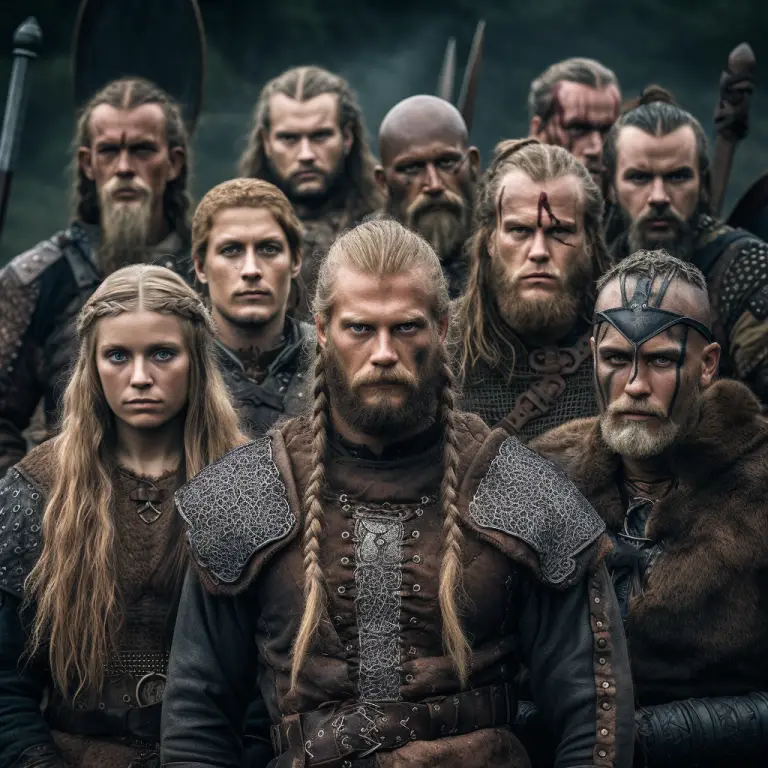Vikings became famous for several reasons, primarily due to their activities during the Viking Age, which spanned roughly from the late 8th century to the early 11th century. Here are some reasons why certain Vikings gained fame:
Raiding and Conquests: Vikings were renowned for their seafaring skills and raids on various parts of Europe. Their raids on monasteries, towns, and other settlements brought them wealth and notoriety.
Exploration: Vikings were skilled navigators and explored new territories. Leif Erikson, for example, is famous for his alleged exploration of North America around 1000 AD.
Leadership and Military Prowess: Viking leaders like Ragnar Lodbrok, Harald Hardrada, and others gained fame for their military exploits. Battles and conquests contributed to their legendary status.
Saga Literature: Norse sagas, epic tales written in Old Norse, played a crucial role in shaping the Viking legacy. These sagas often exaggerated or mythologized the deeds of certain individuals, contributing to their fame.
Trade and Settlements: Some Vikings, like Erik the Red, gained fame for establishing successful settlements in new lands. Erik, for instance, founded the first Norse settlement in Greenland.
Legacy of Descendants: The famous Vikings often had notable descendants who continued their legacy. This familial connection further contributed to the fame of certain Viking figures.
Myth and Legend: Over time, the deeds of Vikings became intertwined with myth and legend. This blending of fact and fiction in storytelling contributed to their enduring fame.
Cultural Impact: Vikings had a significant impact on European history and culture. Their influence is visible in language, art, and even legal systems. This cultural impact contributed to the lasting fame of the Viking Age.
